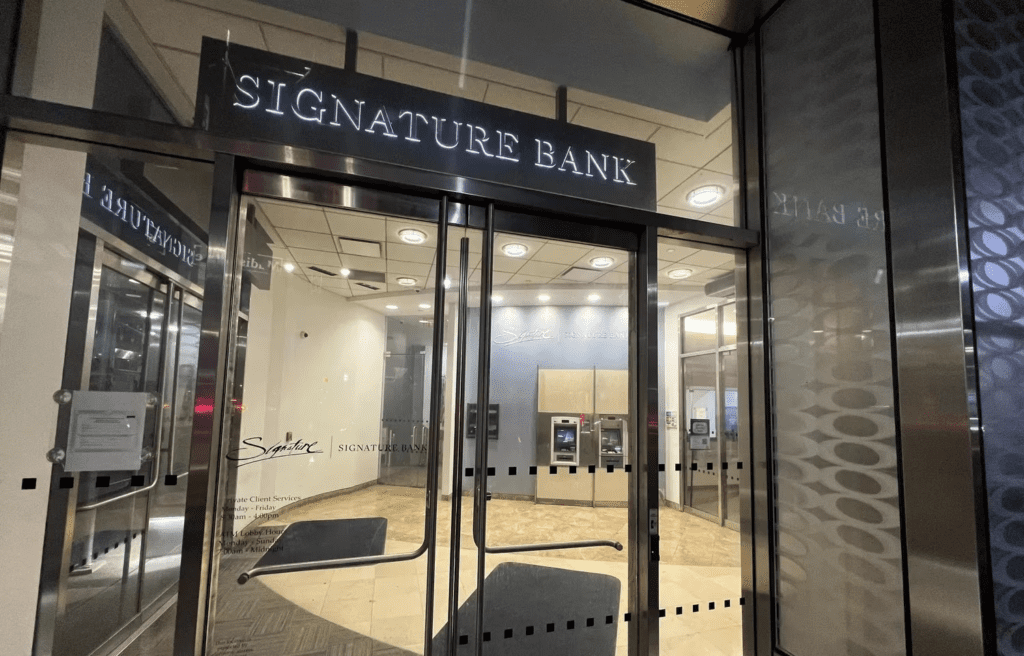Key Points:
- According to an FDIC report, the failure of Signature Bank was caused by “poor management.”
- Bank management, in particular, did not completely comprehend the dangers of taking crypto deposits, which accounted for more than 20% of total deposits.
- According to the government, this was not the underlying reason for Signature Bank’s collapse.
Signature Bank, according to the Federal Deposit Insurance Corporation (FDIC), depended largely on uninsured deposits, lacked effective liquidity risk management techniques, and maintained inadequate risk management in general.

Signature Bank, a crypto-friendly institution, failed due to mismanagement by its officials and contagion effects after the failure of Silicon Valley Bank and the wind-down of Silvergate Bank, according to a federal bank regulator in a report released Friday.
According to the report, all of this was worsened by a bank run triggered by the failure of the other banks. The fact that the bank served the cryptocurrency industry was also cited as a major risk.
“Additionally, SBNY failed to understand the risk of its association with and reliance on crypto industry deposits or its vulnerability to contagion from crypto industry turmoil that occurred in late 2022 and into 2023,” the FDIC said.
After depositors fled, New York state financial officials closed Signature. On March 12, the FDIC took over the institution, making it the third-largest bank collapse in American history. The agency’s chairman, Martin Gruenberg, said that Signature lost 20% of its deposits in a matter of hours on March 10. The bank’s engagement in the crypto companies and financing of commercial real estate has attracted a great deal of attention.

Despite industry rumors that Signature was closed down solely to serve cryptocurrency consumers, NYDFS Superintendent Adrienne Harris has consistently said that the bank had other problems.
The FDIC said that its inability to adequately staff the inspection team between 2017 and 2023 resulted in the postponement of some reviews.
“These vacancies and the adequacy of the skillsets of the Dedicated Team contributed to timeliness and work quality issues and slowed earlier identification and reporting of SBNY weaknesses,” the agency said.
The FDIC report comes on the same day that the Federal Reserve and the Government Accountability Office released their own assessments of Silicon Valley Bank and Signature.
The Federal Reserve, like the FDIC, ascribed SVB’s demise to chronic mismanagement exacerbated by unaccounted-for risks – in SVB’s case, the risks were interest-rate rises and liquidity concerns.
DISCLAIMER: The Information on this website is provided as general market commentary and does not constitute investment advice. We encourage you to do your own research before investing.
Join us to keep track of news: https://linktr.ee/coincu
Harold
Coincu News






















